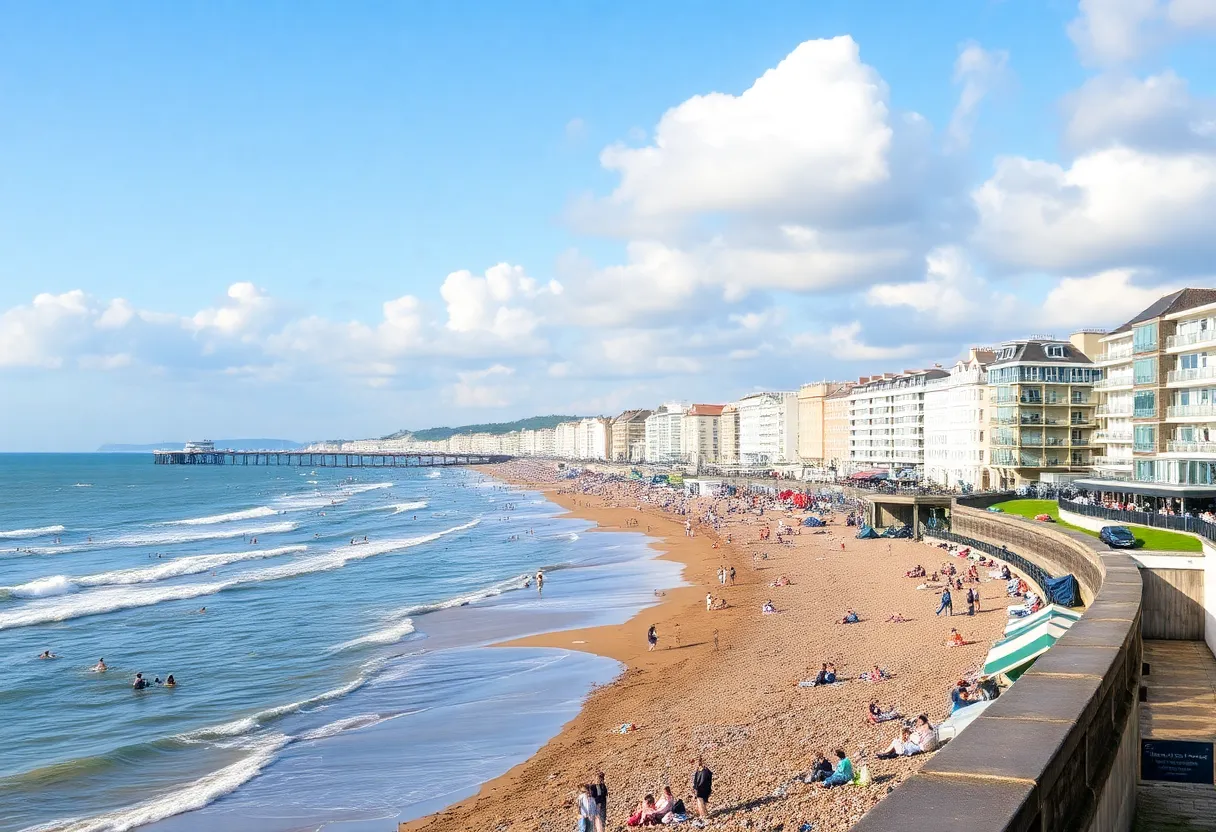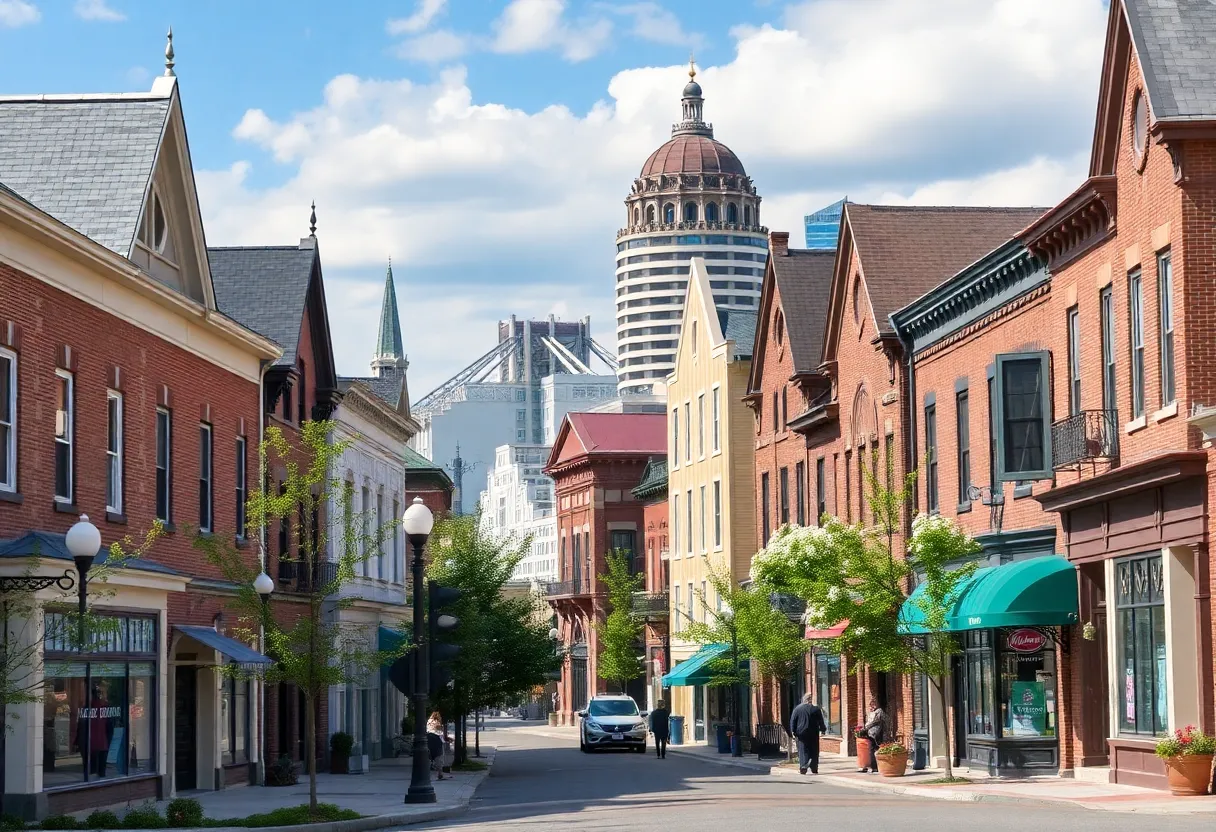News Summary
Brighton evolved from a fishing village to a prominent seaside resort in Georgian England, driven by the trend of medical tourism. The concept of the ‘Sea Cure’ drew patients seeking healing benefits from sea bathing amidst limited travel options. Influential figures and cultural practices shaped the popularity of seaside treatments, promoting health and wellness. The legacy of this movement continues to influence modern wellness trends, highlighting the historical significance of the coastal retreats.
Brighton – The evolution of seaside resorts in Georgian England marked a significant shift in health practices and leisure activities, leading to a flourishing trend in medical tourism. Starting in the early 18th century, these coastal destinations transitioned from humble fishing accommodations to popular health retreats, drawing attention for their therapeutic benefits.
During the Georgian period, from 1714 to 1837, the appeal of seaside resorts was catalyzed by limited travel options and an increasing focus on health and wellness. The phenomenon known as the ‘Sea Cure’ emerged, with individuals seeking treatment for various ailments, including melancholia, cancer, and even leprosy. This movement gained traction as notable figures like King George III praised the positive effects of sea bathing, further promoting medical tourism along the coast.
Despite a lack of regulation in the medical industry of the time, patients sought sea treatments amidst an environment unshaped by modern medical oversight. Medical practice was predominantly theoretical, focusing on ancient texts rather than practical skills, and treatments often adhered to the ancient Greek theory of the four humors. Restoration of balance in bodily systems was pursued through methods like purging and bloodletting.
The Influence of Dr. Richard Russell
In 1750, Dr. Richard Russell significantly contributed to this movement with his publication A Dissertation on the Use of Sea Water. He argued that sea water possessed unique qualities beneficial for numerous diseases, serving to kickstart the trend of sea bathing. Russell reported positive patient outcomes and emphasized the health benefits of salt in sea water, distinguishing it from other mineral waters.
Russell’s work led him to establish a seaside residence in 1753, allowing him to supervise patients’ bathing practices directly and attracting a wealthy clientele, which spurred Brighton’s transformation from a fishing village into a thriving resort town. The popularity of sea bathing was not limited to the aristocracy; literary figures such as Jane Austen also participated, showcasing the trend’s cultural reach.
Cultural Practices at the Coast
Bathing practices differed by gender at the time. Women used bathing machines, wheeled structures designed to protect their modesty while changing and bathing in the water. Men typically bathed nude with assistance from attendants known as “bathers.” Patients were often encouraged to undertake cold baths during the winter months, as documented health benefits were noted, including improved respiratory function from salt air and even the consumption of seawater itself as a form of treatment.
The economic prosperity of Britain during the 18th century coincided with increased leisure time for the general public. As the prestige of seaside resorts grew, commercial advertisements for bathing facilities and accommodations proliferated, reflecting a burgeoning market driven by health tourism. By 1815, guidebooks emerged to assist travelers navigating the diverse seaside destinations available.
Royal Endorsement and Legacy
Brighton quickly became the first major resort town among the aristocracy, frequented by royals such as the Duke of Marlborough and King George III, who particularly enjoyed the benefits of sea bathing at Weymouth. His positive experiences prompted further royal visits and legitimized seaside therapies as valuable health treatment options.
The changing perception of the ocean greatly influenced these developments, shifting from a symbol of danger to a source of healing. Influential explorations and literary works, such as those by Magellan and the publication of Robinson Crusoe in 1719, contributed to this transition.
Although the Victorian era introduced more advanced bathing machines for women, allowing for greater privacy, the legacy of the ‘Sea Cure’ persists in modern wellness trends that value natural remedies and coastal retreats. Today’s awareness of the health benefits associated with beach visits—such as lower cortisol levels, increased Vitamin D, and overall happiness—echoes the practices and beliefs established in Georgia’s seaside resorts during earlier centuries.
Deeper Dive: News & Info About This Topic
HERE Resources
Additional Resources
- History: Sea Cure Beach Resort
- Thrillist: Hysteric Women Sea Cure TikTok Trend
- Time Out: Best Brunch in Brighton
- Sky News: Police Seek Men After Assaults on Beach
- BBC News: Seaside Health Practices in History
- Wikipedia: Medical Tourism
- Encyclopedia Britannica: Seaside Resort
- Google Search: Brighton Seaside Resort History
- Google Scholar: Health Benefits of Sea Bathing
- Google News: Brighton Seaside News
Author: STAFF HERE INDIANAPOLIS WRITER
The INDIANAPOLIS STAFF WRITER represents the experienced team at HEREIndianapolis.com, your go-to source for actionable local news and information in Indianapolis, Marion County, and beyond. Specializing in "news you can use," we cover essential topics like product reviews for personal and business needs, local business directories, politics, real estate trends, neighborhood insights, and state news affecting the area—with deep expertise drawn from years of dedicated reporting and strong community input, including local press releases and business updates. We deliver top reporting on high-value events such as the Indianapolis 500, Indy Jazz Fest, and the Indiana State Fair. Our coverage extends to key organizations like the Indy Chamber and Visit Indy, plus leading businesses in motorsports and healthcare that power the local economy such as Indianapolis Motor Speedway and IU Health. As part of the broader HERE network, we provide comprehensive, credible insights into Indiana's dynamic landscape.





